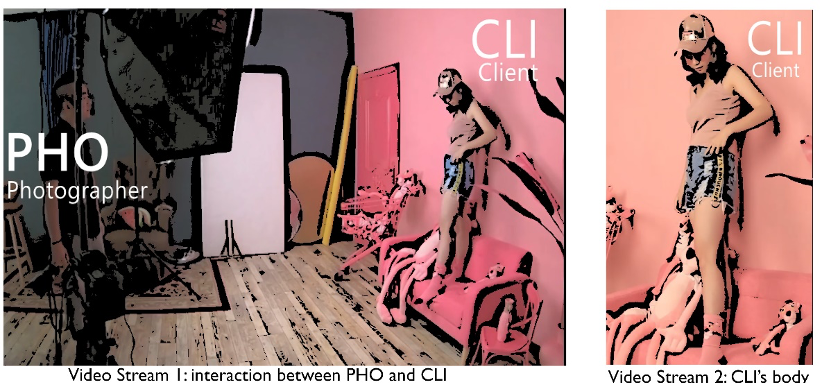When we started the ISCA Forum newsletter in January, and even a few months ago, when we started preparing this second edition, few of us could have anticipated our strange new situation. As we write this, most of us are in lockdown, and academic life is moving almost entirely online. While this is a highly stressful time, there are some silver linings. One among them is that it is bringing our community closer together. Data sessions and working groups are no longer restricted by geographical distances. Moving meetings to online platforms means that everyone can join in from everywhere.
For example, we recently organised the first of what we hope will be a regular online social event: the ISCA Open State of Talk. On Friday, March 27th, we had three afternoon drinks across three different time zones, aiming to bring the global EMCA community together online for an informal hang-out. While the turn-taking required some unusually explicit rules at times (having large numbers of people in one video chat can be challenging, as the last few weeks have shown us all) it was still great fun. In our strange new socially isolated, remotely connected world, new connections were made, and useful tips and new ideas were exchanged.
We will be holding these meetings every Friday at 5pm (AEDT, CET, and PT – adjust for your local time zone!) – just install Skype and follow this link to join the call.
The ISCA Forum newsletter is another way in which we aim to connect the ISCA community across national and continental borders. We have some fascinating articles, as well as some innovative new ways for you to give comments and suggestions, so we hope you will help us to promote discussion and exchange. We also want to inform ISCA members about the new resources available on the site. The Jefferson Index to Sacks’ Lectures, edited by Prof. Gene Lerner is up and running (for ISCA members), and we have lots more planned for our next issue including an ISCA podcast, and updated versions of Emanuel Schegloff’s much-missed Audio Clips publication archive and Transcription Modules.
Data Session Report

Long before the current pandemic forced us online, the Remote Data Sessions were already an established practice. Three years ago, Jack Joyce, Marina Cantarutti, and Natalie Flint started running a regular online data session, bringing together scholars from all over the world. In this newsletter, they share their experience, describing a protocol that contains all the necessary steps, from choosing a platform to how to take turns during the data session so it runs smoothly. Undoubtedly, this will provide an invaluable resource in the months and years to come, and we are pleased to invite ISCA members to use ISCA’s online platform to host their data sessions.
Read their full account: Remote Data Sessions
Squib

Laughter has long been one of the central topics in EMCA research. Gail Jefferson herself already focused on how participants elicit laughter from each other her early work. But laughter is rarely the goal of interaction, it is merely one part of it. In her squib, Yumei Gan, a PhD researcher at the Chinese University in Hong Kong, discusses the how laughter is elicited in a photography studio as part of a pose. There, laughter is part and parcel to the overarching activity, and successful laughter is a collaborative achievement between photographer and model. However, as she shows, not all laughter is equal. Participants distinguish between fake laughter and real laughter, making one desirable and the other an interruption to the progressivity.
Read and comment on the full length squib: Producing a smiling face in the photography studio
Field Report

Technology was the catalyst for the emergence of EMCA. As Sacks explains in his lectures, having a tape recorder made it possible to get a stable record of conversations, which opened conversation up to detailed and systematic analysis. But what if the technology is not up to the task? Emily Hofstetter, a research fellow at Linköping University, gives a detailed explanation of how she studied rock climbers in action. A camera on the ground would only give a limited view of the action and interaction, and so Emily designed and built her own GoPro rig to gain better insights into the climbers’ perspectives. She argues that the type of data we study will need to determine how we go about recording it, instead of simply fumbling with the least bad option of when using a conventional tripod.
Check how she built her GoPro tools: Building opportunities for new angles in video data collection
Are you on the #EMCA Social Media sphere?
Follow our twitter accounts at:
- @iscaupdates (for news about ISCA and retweets from #EMCA researchers worldwide)
- @emca_news (for announcement, conference/workshop calls for proposals, jobs, events etc.)
- @emcawiki (for new additions to the emca bibliography).
You can also like our ISCA Facebook Page and follow our new ISCA Instagram.
Editorial committee
- Saul Albert – University of Loughborough, UK
- Maha Al-ayyash – King Abdulaziz University, Jeddah, SA
- Yusuke Arano – Saitama University, JP
- Vittoria Colla – University of Bologna, IT
- Yumei Gan – Chinese University of Hong Kong, HK
- Jack Joyce – Ulster University, UK
- Amelia Hill – UCLA, USA
- Elliott Hoey – University of Basel, CH
- Emily Hofstetter – Linköping University, SE
- Stamatina Katsiveli-Siachou – Queen Mary University of London, UK
- Holly Sansone – Queensland University of Technology, AU
- Lucas Seuren – University of Oxford, UK
- Emma Tennent – Victoria University of Wellington, NZ

